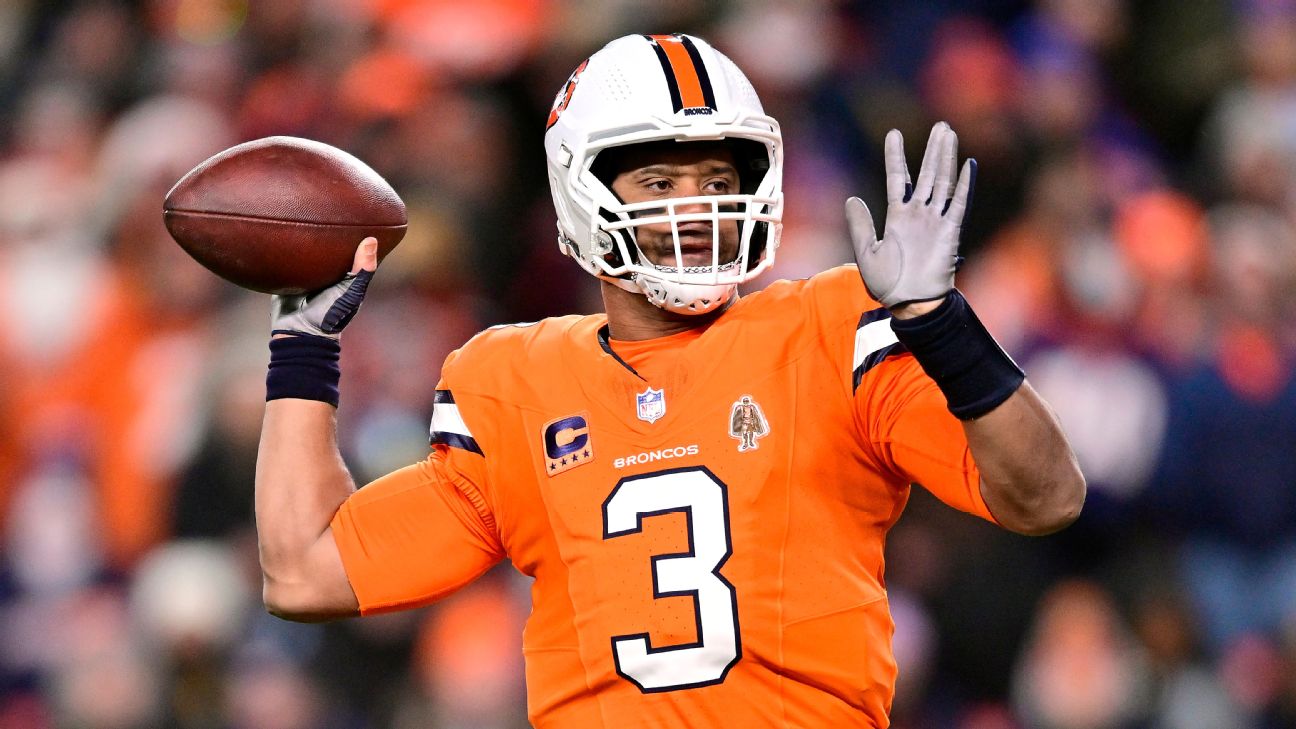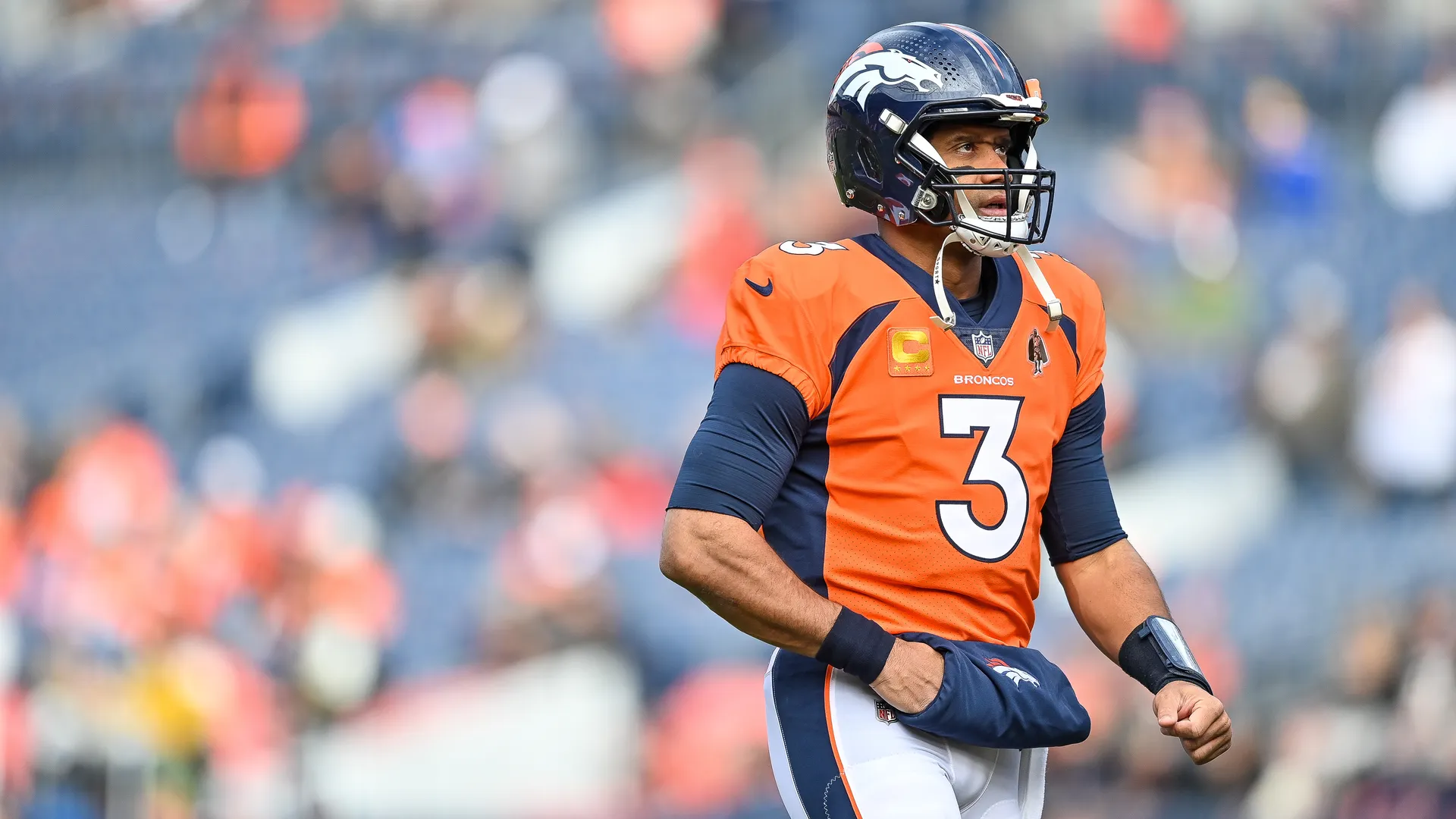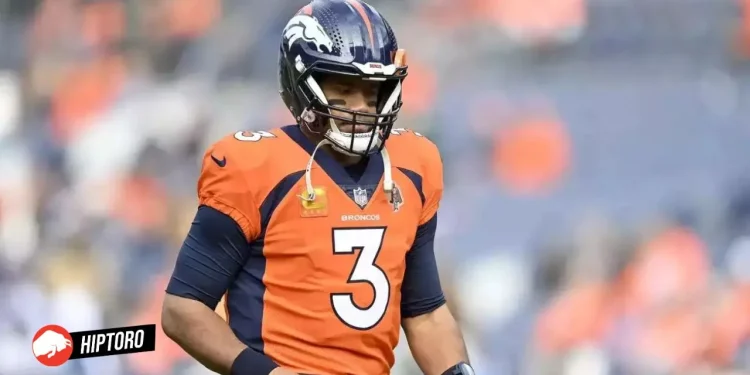In a decision that reverberated across the National Football League (NFL), the Denver Broncos took a definitive step away from what many saw as a partnership poised for greatness. The release of quarterback Russell Wilson, a move announced early this week, has turned heads not just for its immediate impact on the team’s dynamics but also for the financial ramifications that accompany it.
With an unprecedented dead cap hit looming, the Broncos are navigating uncharted waters, setting a new precedent in the league’s financial management.

The Price of Parting Ways From Russell Wilson
The departure of Russell Wilson from the Broncos‘ roster is not just a headline-grabbing move but a costly one at that. The team is bracing for a dead cap hit of $85 million, a staggering figure that eclipses the combined total of the previous records in the NFL. This financial burden stems from the guaranteed money remaining on Wilson’s deal at the time of his release, highlighting the hefty price of seeking a new direction.
Wilson’s tenure with the Broncos began with high hopes in 2022, following a blockbuster trade that saw Denver relinquishing two first-round draft picks and three players for the quarterback. Wilson’s five-year, $242 million contract was a testament to the Broncos’ belief in his ability to lead the team to glory.
However, the relationship between Wilson and the franchise, particularly under the guidance of new head coach Sean Payton, failed to flourish as expected. The 2022 season left much to be desired, culminating in Wilson’s benching towards the end of the 2023 campaign.
If I’m the Denver Broncos I’m giving Mr. Kurt Benkert an opportunity to be the franchise QB‼️pic.twitter.com/iLlNOmEvUc
— Jonathan ⚡️ (@ChargersRuined) March 4, 2024
A New Quarterback Era
With Wilson’s departure now official, the Broncos are left to ponder their next move in the quarterback department. The team’s decision to release Wilson before his 2025 salary of $37 million became fully guaranteed illustrates a strategic attempt to mitigate financial damage. However, the looming dead cap hit, likely to be spread over the next two years, still presents a significant challenge for the organization.
In the immediate aftermath, the Broncos have turned to Jarrett Stidham, who stepped up in the final games of the season, showcasing his potential as a viable option under center.
Stidham’s performance, though limited, has provided a glimmer of hope for the Broncos as they assess their quarterback strategy moving forward. With Stidham under contract for 2024, the team has some breathing room to explore other avenues, be it through the draft or free agency.

Denver Broncos Drafting the Future
The financial implications of Wilson’s release make it increasingly likely that the Broncos will look to the NFL Draft for their quarterback of the future. Given the substantial cap hit associated with a player no longer on their roster, investing in a young, talented quarterback through the draft could offer the Broncos a cost-effective path to rebuilding their offense.
The draft, rich with promising prospects, presents an opportunity for Denver to turn the page and embark on a new chapter with fresh leadership at the quarterback position.
In conclusion, the Denver Broncos’ decision to part ways with Russell Wilson marks a pivotal moment in the franchise’s history. The move, costly as it may be, underscores the team’s commitment to recalibrating its strategy and building a competitive roster for the future.
As the Broncos navigate the financial and strategic implications of this decision, the eyes of the NFL world will be watching, eager to see how this bold move unfolds in the seasons to come.

Source: Denver Broncos









